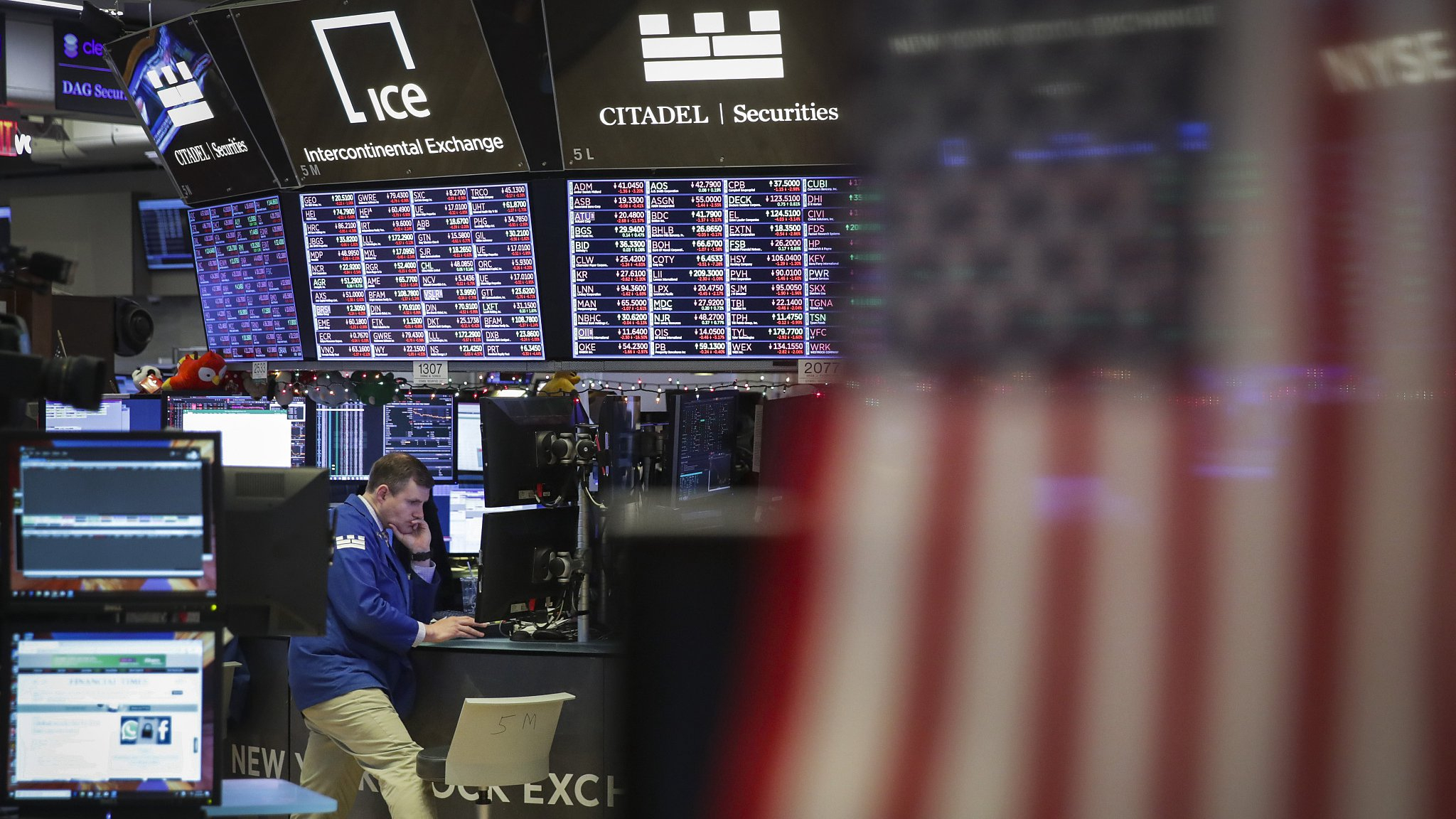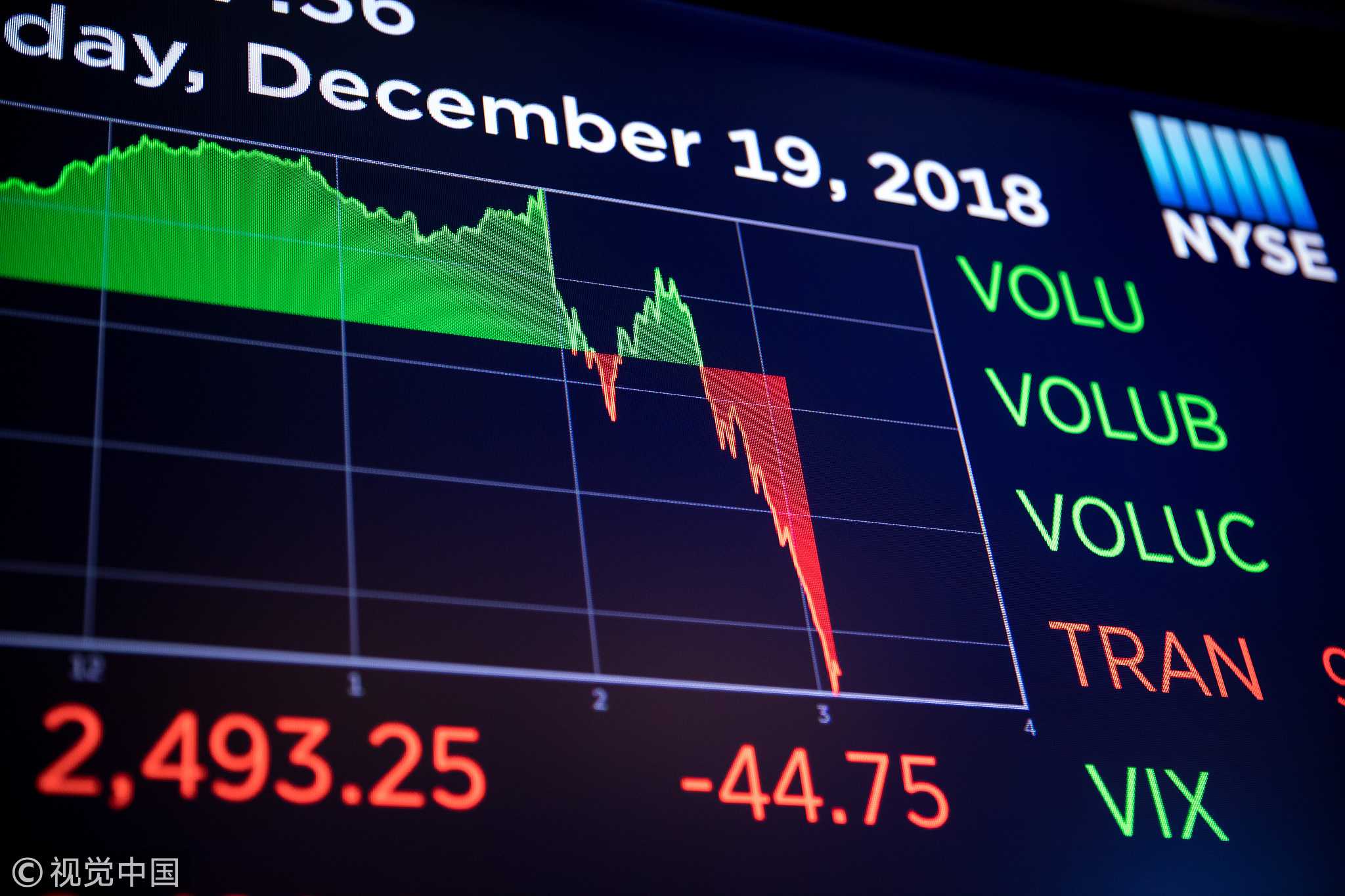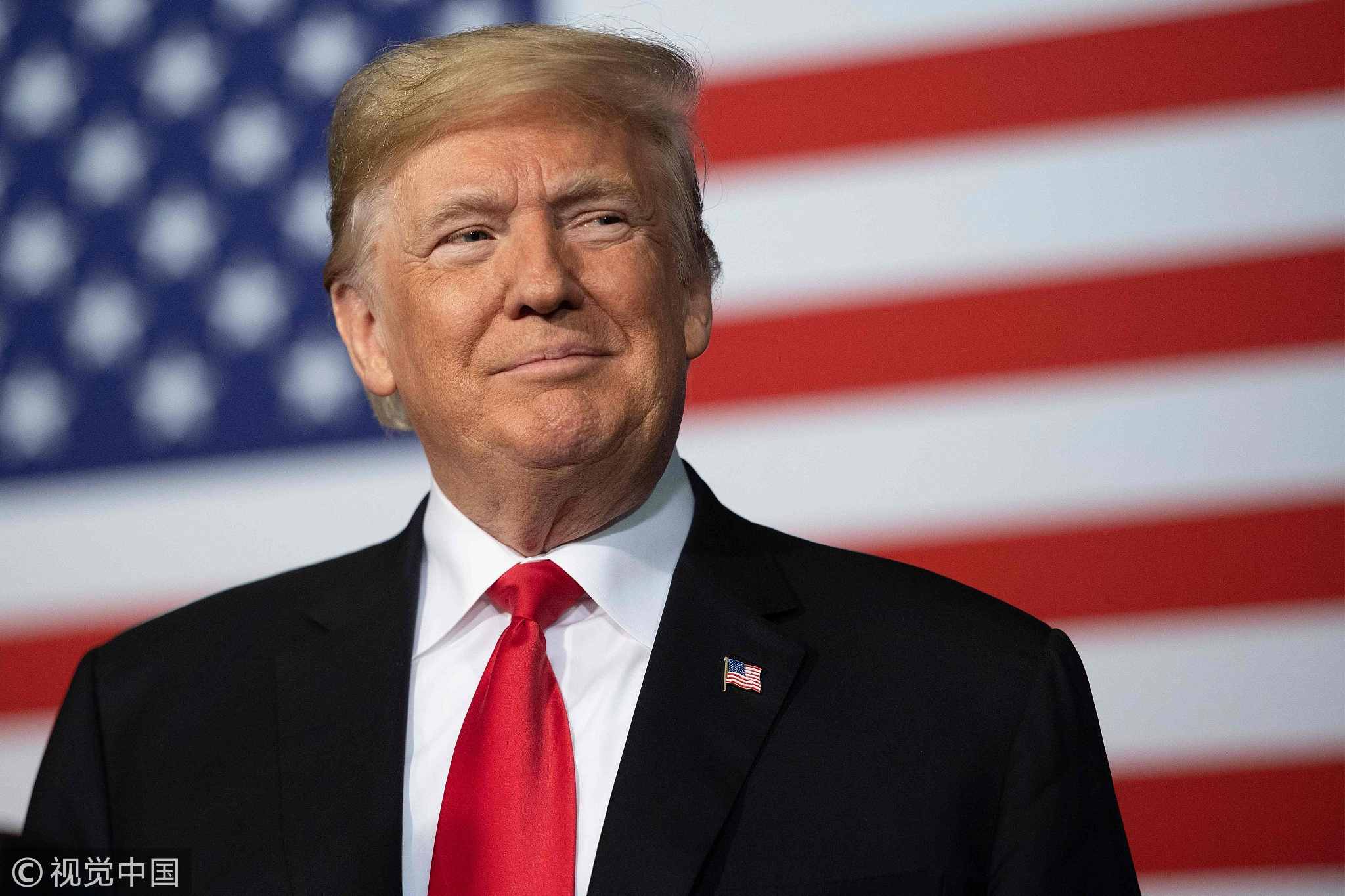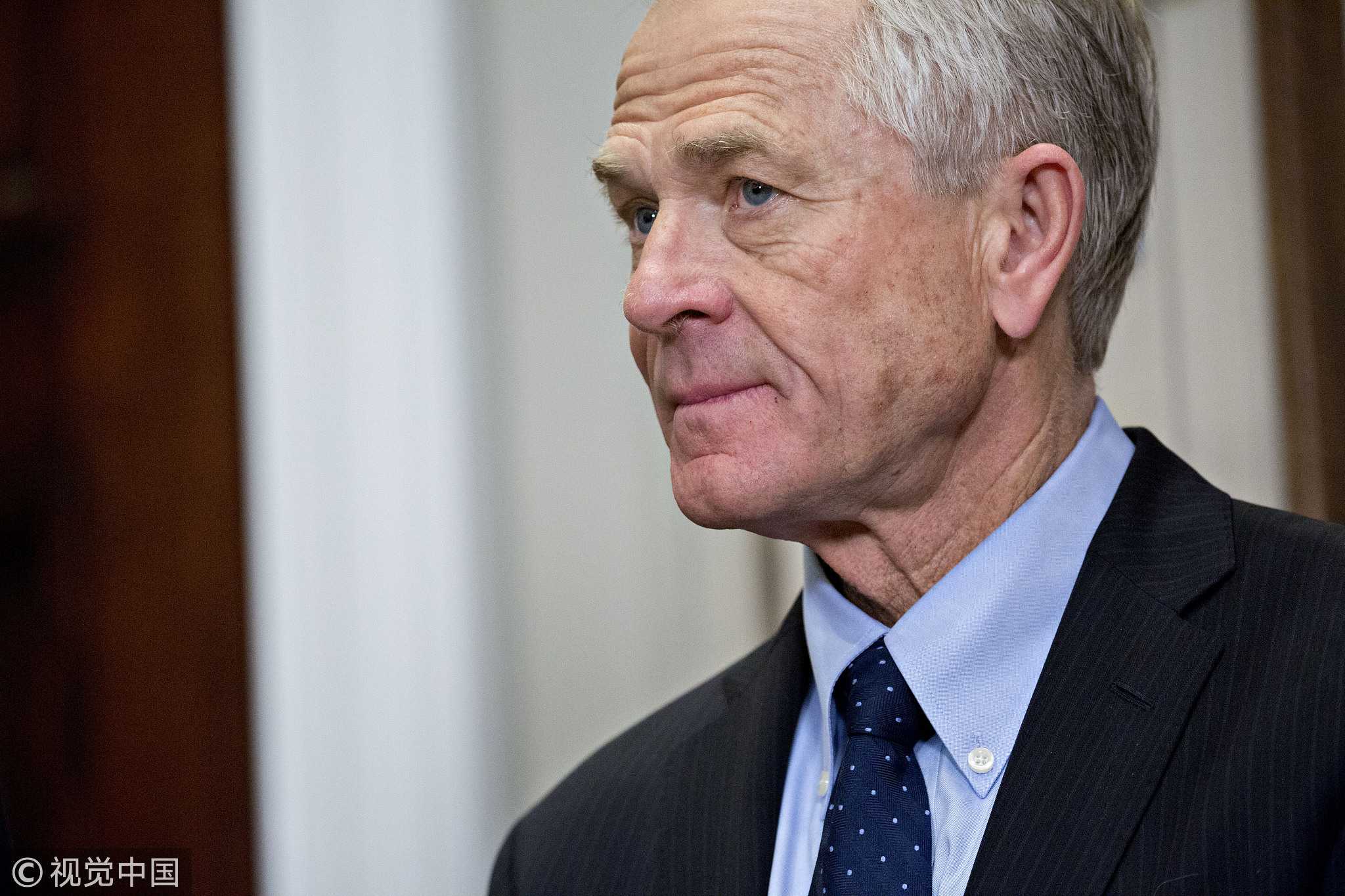
Opinions
11:05, 24-Dec-2018
Opinion: Trump has exaggerated the strength of the U.S. economy
Updated
10:38, 27-Dec-2018
Tom Fowdy

Editor's Note: Tom Fowdy is a UK-based political analyst. The article reflects the author's views, and not necessarily those of CGTN.
A frequent staple of Donald Trump's rhetoric has been that the U.S. economy is booming. U.S. growth has certainly picked up again, and the president had no reservations into attempting to inject a feel-good factor into American society.
For the space of a year, he took to Twitter to repeatedly boast about rising stock markets, job creation totals and other indicators. Then came the trade war.
Although the White House has repeatedly tried to facilitate the image that tariff measures are bringing China to its knees, whilst America, holding the “real leverage” is doing just fine, recently released economic data suggests that the economic standoff with Beijing is, in fact, starting to take its toll on the United States.
GDP figures show a slowdown in growth, with the economy growing only 3.4 percent as opposed to an anticipated 3.5 percent, exports tumbling 4.9 percent (goods 8.1 percent), slowing consumption and in stocks, Trump's most prized indicator, a dramatic fall which has wiped out over 16 months' worth of gains.
Such data, of course, is not all doom and gloom as the U.S. economy will continue to grow. However, there are now signs of a slowdown and an environment of uncertainty directly stemming from the economic policies of the White House.

A monitor displays stock market information on the floor of the New York Stock Exchange (NYSE), December 19, 2018. /VCG Photo
A monitor displays stock market information on the floor of the New York Stock Exchange (NYSE), December 19, 2018. /VCG Photo
Trump has without a doubt exaggerated the strength of the United States in being able to wage a full trade war with Beijing. As the 90-day deadline for trade talks looms, it is time to view the situation with realism and caution, rather than a continuation of the naive attitude Washington can somehow cause serious damage to China without hurting itself.
Donald Trump is a president who builds his portfolio around gross exaggeration of his achievements, as well as taking credit for things that he didn't do. The economy is no exception. In this area, his policy has been more style than substance.
Before Trump came into office, signs of an economic recovery in the United States were already well underway. He was simply lucky concerning the timing. Yet, he has sought to claim credit at every opportunity and attribute U.S. growth to his “America first” policies.
Under the microscope, however, what has he actually done? There are only two notable economic actions he has actually pursued – his tax cuts and, of course, the trade war.
Concerning the tax cuts, a number of economists have noted that the measure created a small boost to the economy, but one which was short-lived. And concerning the latter, there have, of course, been widespread concerns from the beginning.

U.S. President Donald Trump speaks at the 2018 Project Safe Neighborhoods National Conference in Kansas City, Missouri, December 7, 2018. /VCG Photo
U.S. President Donald Trump speaks at the 2018 Project Safe Neighborhoods National Conference in Kansas City, Missouri, December 7, 2018. /VCG Photo
It has widely been documented how the trade war and the amplification of political risks from it are creating a ripple effect that is slowing down global growth. Did the administration really believe the U.S. could avoid this?
Seemingly so, at every opportunity, the administration has sought to sweep potential impacts of the trade war under the carpet and claim that the United States is utilizing superior leverage which will bring China to his knees.
Peter Navarro stood on the White House lawn and boasted tediously about the fall in the Shanghai Composite. Trump himself took to Twitter and repeatedly stated the Chinese are “desperate to make a deal” claiming the Chinese economy was tanking (despite growth being nearly twice that of the U.S.) and America was booming.
He claimed that the tariffs were allowing the U.S. to make “billions” from China, ignoring the fact it was U.S. importers and companies paying for them. When Apple said they didn't like it, he spewed more nonsense saying “well build here in America!”

Peter Navarro, director of the National Trade Council, signs proclamations on adjusting imports of steel and aluminum into the United States in the Roosevelt Room of the White House in Washington, D.C., U.S., March 8, 2018. /VCG Photo
Peter Navarro, director of the National Trade Council, signs proclamations on adjusting imports of steel and aluminum into the United States in the Roosevelt Room of the White House in Washington, D.C., U.S., March 8, 2018. /VCG Photo
At no point did the administration ever publicly account for any economic consequences of the trade war. Those who had more level views, such as Steven Mnuchin, were often ignored.
Now, things suddenly look a lot less rosy. The dramatic fall in U.S. exports can be attributed to no other policy and no other person and the stock market's tumble has been the worst since 2008, largely caused by uncertainty.
There should be no mistake about it; the consequences of the trade war are here. Yes, of course, that isn't going to plunge the economy into recession, but that reality now needs to be acknowledged.
Thus, as the United States engages in the three-month window of trade negotiations with China, realism and self-introspection are needed. This whole economic conflict has constituted a denial of reality that the economies of Washington and Beijing are ultimately interdependent and need each other to thrive.
The claim that America could take this path and not harm itself in the process was one made in complete dishonesty. Therefore, if this window passes and Trump decides to increase the proportion of tariffs to 25 percent, the damage he serves to impose will be mutual in every instance.
(If you want to contribute and have specific expertise, contact us at opinions@cgtn.com.)

SITEMAP
Copyright © 2018 CGTN. Beijing ICP prepared NO.16065310-3
Copyright © 2018 CGTN. Beijing ICP prepared NO.16065310-3